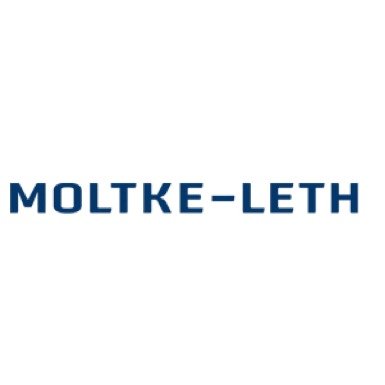Best Antitrust Litigation Lawyers in Denmark
Share your needs with us, get contacted by law firms.
Free. Takes 2 min.
Or refine your search by selecting a city:
List of the best lawyers in Denmark
About Antitrust Litigation Law in Denmark
Antitrust litigation in Denmark focuses on promoting fair competition within the Danish market and protecting consumers and businesses from anti-competitive practices. Denmark follows a strict legal framework that prohibits cartels, abuse of dominant positions, and other practices that may hinder competition. The cornerstone of antitrust enforcement in Denmark is rooted in national legislation harmonized with European Union competition rules. Cases typically involve disputes over price fixing, bid rigging, market-sharing agreements, mergers, or monopolistic practices, and can be brought before courts or competition authorities.
Why You May Need a Lawyer
Engaging a lawyer specializing in antitrust litigation is crucial when dealing with complex competition law issues. You may require legal help if:
- Your business is accused of anti-competitive conduct, such as price fixing or market sharing.
- You are subject to a competition authority investigation or raid.
- Your company is affected by another company’s monopolistic practices or exclusionary behavior.
- You wish to challenge or defend a merger or acquisition on competition grounds.
- Your business is seeking compensation for damages as a result of anti-competitive conduct by others.
- You need advice on compliance with Danish and EU competition laws to avoid potential penalties.
Antitrust cases can have significant financial and reputational consequences. A lawyer can help assess risks, guide you through investigations, represent you in court, and help negotiate settlements or leniency applications.
Local Laws Overview
Danish antitrust law is governed primarily by the Competition Act (Konkurrenceloven), which closely aligns with EU competition regulations (notably Articles 101 and 102 of the Treaty on the Functioning of the European Union). Key aspects include:
- Prohibition of Cartels: All agreements between companies that prevent, restrict, or distort competition are illegal. This includes price-fixing, market division, and collusive tendering.
- Abuse of Dominant Position: Companies with significant market power are forbidden from abusing their position by imposing unfair prices or restricting production.
- Merger Control: Larger mergers and acquisitions must be notified and approved by the Danish Competition and Consumer Authority (DCCA) before completion, to ensure they do not significantly impede competition.
- Enforcement and Sanctions: The DCCA is empowered to investigate and sanction infringements, and can refer serious violations for criminal prosecution. Fines can be substantial, and individuals may face personal liability.
- Private Litigation: Affected parties can seek damages in Danish courts for losses resulting from anti-competitive behavior.
Procedures in Denmark are harmonized with EU standards, making cross-border cases common, especially for multinational companies.
Frequently Asked Questions
What is considered anti-competitive behavior in Denmark?
Anti-competitive behavior in Denmark includes price fixing, market sharing, bid rigging, abuse of dominant position, and any agreements or actions that restrict competition or harm consumer welfare.
Which authority enforces competition law in Denmark?
The Danish Competition and Consumer Authority (Konkurrence- og Forbrugerstyrelsen or DCCA) is the main enforcer, with oversight from the Competition Appeals Tribunal and Danish courts.
Can companies file private lawsuits for competition law violations?
Yes. Companies and individuals harmed by anti-competitive practices can file damages claims in Danish courts, either independently or following a DCCA decision.
What penalties can be imposed for violating Danish antitrust laws?
Penalties include substantial fines for both companies and individuals involved. In serious cases, criminal prosecution and imprisonment can be possible for individuals.
Are mergers or acquisitions subject to review in Denmark?
Yes. Mergers above certain turnover thresholds must be notified and approved by the DCCA before closing, to ensure they do not harm competition.
Can a company apply for leniency if involved in a cartel?
Yes. Denmark operates a leniency program under which companies that cooperate with the DCCA by revealing their involvement in a cartel may obtain reduced fines or immunity from penalties.
What is the typical process during a competition investigation?
The DCCA may launch an investigation, conduct dawn raids, request information, and interview company representatives. Parties have the right to be heard before decisions are made, and can appeal decisions to the courts.
How long does antitrust litigation take in Denmark?
Timelines vary depending on the case's complexity but investigations and court proceedings often take several months to years, especially if appeals are involved.
Does Danish law follow EU competition rules?
Yes. Danish law is closely aligned with EU competition regulations. In cross-border cases or where trade between EU countries is affected, EU law may take precedence.
Can individuals be held personally liable under Danish competition law?
Yes. Managers and employees involved in serious violations can also face personal fines or, in rare cases, criminal prosecution.
Additional Resources
For further information on antitrust litigation in Denmark, the following resources can be helpful:
- Danish Competition and Consumer Authority (Konkurrence- og Forbrugerstyrelsen)
- Danish Competition Appeals Tribunal (Konkurrenceankenævnet)
- Danish Ministry of Industry, Business and Financial Affairs
- European Commission - Competition Directorate
- Danish Bar and Law Society (Advokatsamfundet)
- Business advocacy organizations and industry associations with interest in competition law
Next Steps
If you need legal assistance with antitrust litigation in Denmark, consider the following steps:
- Gather all relevant documents and evidence, such as contracts, correspondence, and financial data.
- Assess whether your issue falls under competition law and the potential risks or liabilities.
- Consult with a lawyer who specializes in competition and antitrust law in Denmark.
- If your business is subject to an investigation, respond promptly and seek legal counsel before submitting information or statements.
- Consider reporting your concerns to the DCCA if you suspect anti-competitive practices affecting your company.
- Stay informed about compliance requirements to minimize the risk of future legal issues.
Promptly addressing any competition law concerns can protect your rights and help avoid significant penalties. A trained lawyer can navigate the legal processes and represent your interests effectively.
Lawzana helps you find the best lawyers and law firms in Denmark through a curated and pre-screened list of qualified legal professionals. Our platform offers rankings and detailed profiles of attorneys and law firms, allowing you to compare based on practice areas, including Antitrust Litigation, experience, and client feedback.
Each profile includes a description of the firm's areas of practice, client reviews, team members and partners, year of establishment, spoken languages, office locations, contact information, social media presence, and any published articles or resources. Most firms on our platform speak English and are experienced in both local and international legal matters.
Get a quote from top-rated law firms in Denmark — quickly, securely, and without unnecessary hassle.
Disclaimer:
The information provided on this page is for general informational purposes only and does not constitute legal advice. While we strive to ensure the accuracy and relevance of the content, legal information may change over time, and interpretations of the law can vary. You should always consult with a qualified legal professional for advice specific to your situation.
We disclaim all liability for actions taken or not taken based on the content of this page. If you believe any information is incorrect or outdated, please contact us, and we will review and update it where appropriate.
Browse antitrust litigation law firms by city in Denmark
Refine your search by selecting a city.















